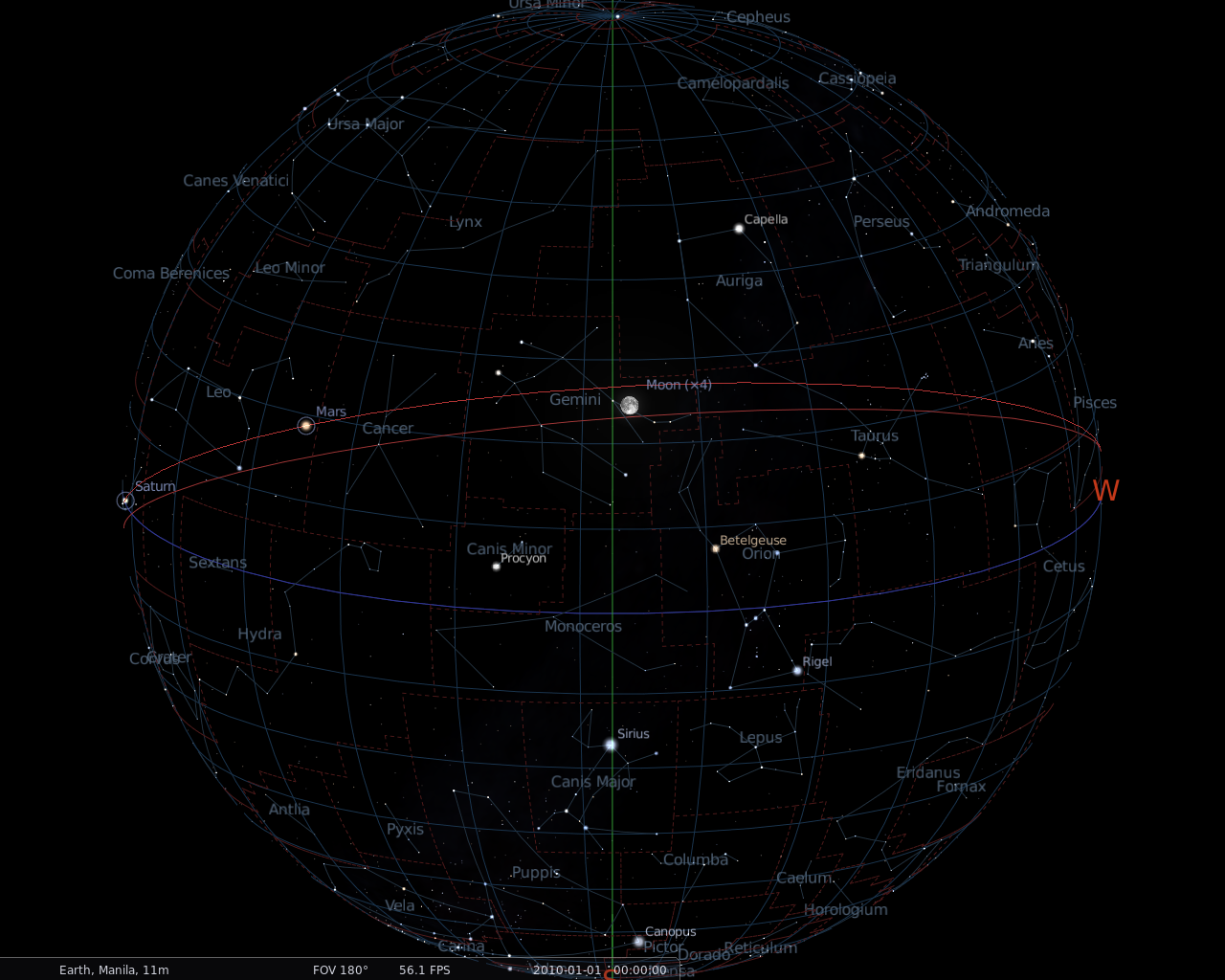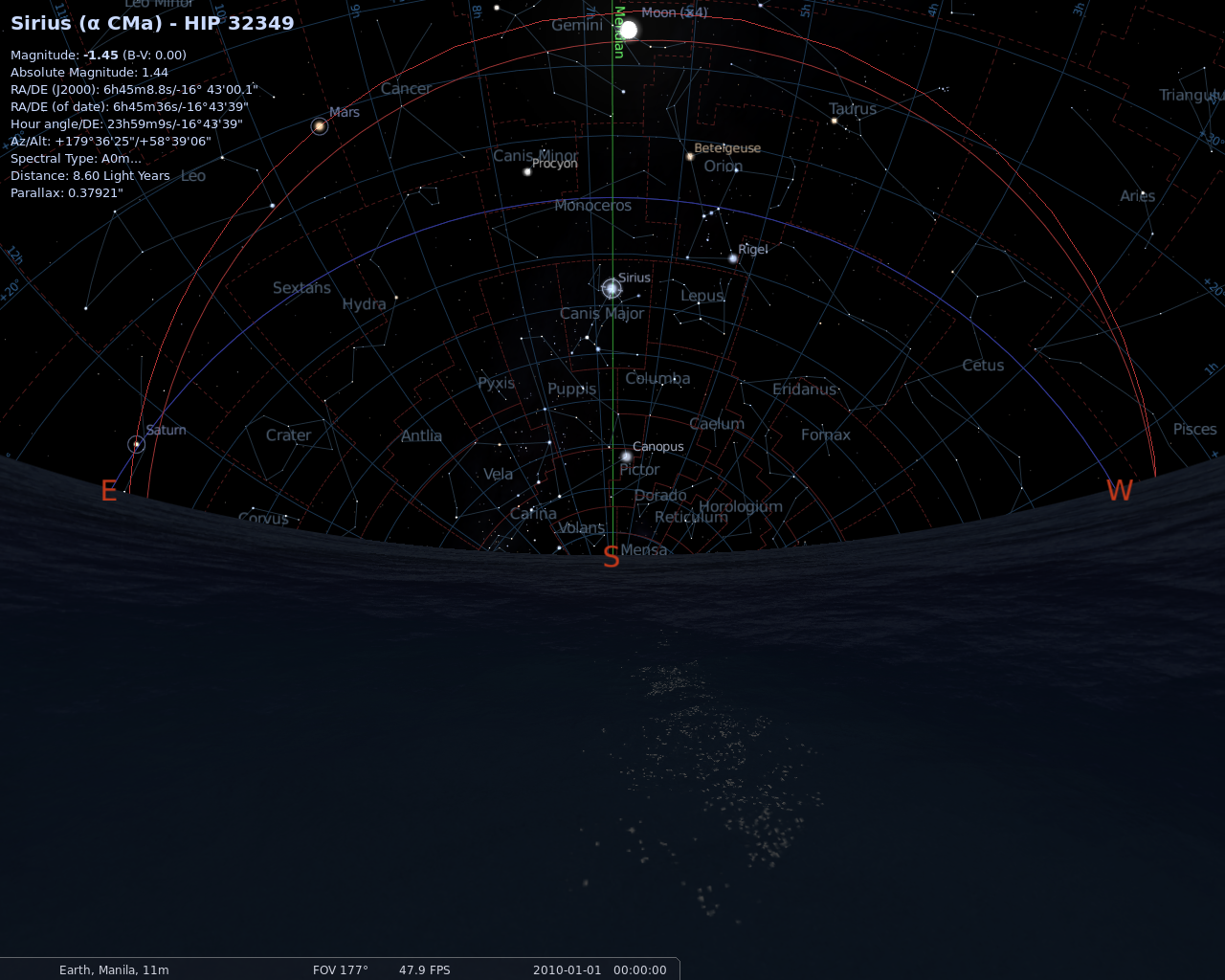
Space

A rare New Year's day blue Moon
An hour and thirteen minutes after Aseans and China welcomes the New Year 2010, we will be treated with a rare New Year’s Day Blue Moon. No, Earth’s Moon will not turn color Blue, it has nothing to do with color (if it turns color Blue, then it is because of Earth’s atmosphere at that time). What “Blue Moon” means is that it is the second Full Moon in a single month.
This January 2010 Blue Moon is rare because it falls on New Year’s Day (or New Year’s Eve depending on where you are). This type of Blue Moons only occurs every 19 years, the last was in 1990/1991 and the next will be on 2028/2029.

Mars, a beautiful ruby shines tonight
Last night between 9:30 and 10:00 in the evening, we were staring at the starry skies in front of SM Mall of Asia while reminiscing the things that happened this year 2009 and the 2000 decade. During our conversation, I noticed a big and bright red star at first I thought that it was some red light from a communication tower or antennæ.
Inspecting closer (my eyes have zooming capabilities :p ) I noticed that it wasn’t what I thought it was and it wasn’t twinkling either. I got excited because I knew then that I was looking at humanity’s dream - Planet Mars!

The YOOki Chronicles is Yohan Yukiya Sese-Cuneta’s return into casual and personal blogging. The name “YOOki” is a mash-up of the acronym of YourOnly.One and my nickname ᜌᜓᜃᜒ (Yuki・雪矢).
Interestingly, according to Chinese legend,
.1柳
(YOO) is an ancient Chinese surname. The ancestors of the surname were closely linked with the ancient sage-king named Yu Shun. In Korea, the 유
(YU) lineage traces to the Xia, Han, and Joseon dynasties. Holders of the surname Yu or Yoo had a reputation for charity and diligence
It is also the word for “willow” or the “willow tree” which means graceful or slender; and a tree growing near a body of water which provide continuous nourishment and resources for everyone. It can also mean to exist, an oil (anointment(?)), and simply as “U” (you).
The Hanzi 紀
(ki) character means to record, be disciplined, provide order. While the Hangeul equivalent, 키
(ki), means energy, spirit, a banner, and a period of time; and is also a suffix used to make a gerund or an infinitive.
